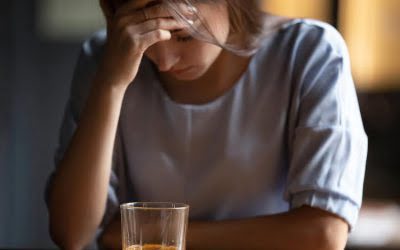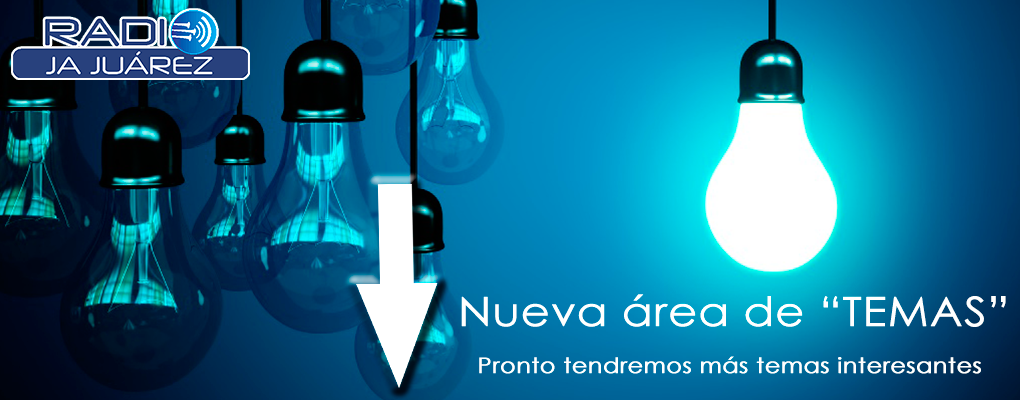Contents
Smoking is linked to hair loss, or more specifically, androgenic alopecia (Babadjouni, 2021; Salem, 2021). And do you have to forego the occasional glass of wine for a healthy head of hair? We offer inpatient and outpatient care, including addiction detox.
It is generally difficult to see the results of such mineral deficits because the clinical signs maybe vague and nonspecific. This may be due to poor nutritional intake, which is common in chronic alcohol drinkers, or poor absorption due to alcohol-related maladies. Whatever the cause, low nutritional levels can lead to hair loss. Of course, the obvious best solution is to drink in moderation, but there are a few other things that can help in conjunction with this. «It is also important to eat a balanced diet consisting of proper nutrients, vitamins, and protein, and to also drink plentyof water,» says Dorin. Although no one was questioning it, it turns out everyone was right about that one glass of water per drink ratio.

While you might know that stress can create an atmosphere that encourages drinking, a growing body of evidencesuggests there’s a complex link between stress and alcohol consumption. Overdrinking can actually increase stress levels over time, creating a vicious cycle of stress that can be hard to break. Are you drinking because you’re stressed, or are you stressed because you’re drinking? Drinking excessive amounts of alcohol can harm hair, which requires adequate amounts of nutrients to grow and stay healthy. According to a 2018 review, chronic alcohol consumption can increase the risk of nutritional deficiencies. Even though there is no way to prevent alcohol-related hair loss, you can change your habits to decrease the chances of losing or thinning your hair.
Other Ways Alcohol and Hair Loss Are Linked
According to the National Institutes of Health, most people in the United States get adequate zinc from their diet. However, there’s a concern that adults older than 60 may be at risk for zinc deficiency, particularly if access to food is limited. The recommended daily amount of zinc for most adults is 8 to 11 milligrams. Long-term stress is linked to hair loss and causes a condition called telogen effluvium. If you are experiencing hair loss, it’s easy to go down the Google rabbit hole and try to determine the cause of your hair loss. While some might say it’s genetics, and others might blame it on your hormones, you are also sure to find an article or two linking hair loss to your glass of wine.

«So, when considering cocktail mixers, the lower sugar option will be best for overall health,» she tells us. Nicole hopes to spread awareness of and combat the stigmatization surrounding addiction and substance abuse treatment through her writing and work in the field. Addiction can be extremely difficult and isolating, and dealing with hair loss as a result of this can only make this experience even harder. That is why our team at Find Addiction Rehabs is dedicated to finding you or your loved one the help you need. Foods rich in vitamins (i.e. vitamin C and vitamin D) which promote collagen production, including fresh fruits, vegetables, seeds, and nuts.
With your recovery journey underway, there are a few natural ways you can get your hair growing again, like using LLLT. LLLT, also known as low-level laser therapy, uses light to restore your scalp, regrow your hair, and regenerate old cells. This technology is clinically tested, and some laser cap brands have FDA clearance for safety and reliability. Made with a combination of plant-based oils, this can be used on damp hair before styling or on dry hair to smooth flyaways. Furthermore, nicotine can have a negative impact on collagen and elastin, which can further keep hair from growing.
Articles Related to Alcoholism
It should not be used in place of the advice of your physician or other qualified healthcare providers. Alcohol also inhibits nutrient absorption by harming the lining of your digestive system over time, damaging your intestines until they can’t transfer nutrients to the blood. Without proper protein, the production of keratin slows; this protective agent bonds hair cells together and your hair becomes prone to split ends and breakage. Similarly, zinc and folic acid, which are essential for hair growth, aren’t soaked up by your follicles. When it comes to people with binge drinking habits, this can lead to extreme dehydration.
«Hydration is key to healthy, shiny, hair.» You should also take your supplements regularly, and chase a night out with a hydrating hair mask for good measure. Alcohol also makes it more difficult for your body to burn any foods you alcoholic pancreatitis eat. The body flags alcohol as a toxin, and the liver focuses on breaking down alcohol before any fat, carbohydrate, or protein. When the liver is constantly working to process alcohol rather than food, you start to gain weight.
For individuals with this condition, their previously healthy scalp may appear patchy, with diffused areas of baldness across their head. There may be an increased risk of a more serious form of prostate cancer in purpose and structure of oxford house men taking finasteride at 5 times the dose of finasteride. Minoxidil and finasteride (brand name Propecia; see Important Safety Information) are two medications FDA-approved to treat certain types of hair loss.
Over half of alcoholics suffer from an undiagnosed mental illness. Alcohol is a diuretic, which means that your body increases the production of urine. BriteLife Recovery has everything needed to set you up with both short- and long-term recovery goals. Hims & Hers has strict sourcing guidelines to ensure our content is accurate and current. We rely on peer-reviewed studies, academic research institutions, and medical associations.
It is also been found that Insulin-like Growth-Factor 1 (IGF-1), which is most abundant in those with insulin resistance, is shown to induce androgen production . In other words, it produces more DHT which is believed to be the main trigger for AGA sufferers. In this article, you will find out the truth about alcohol and its relation to hair loss.
Eat a Healthy, Balanced Diet
During this phase, hair follicles start to shrink and growth slows down; eventually the hair will separate from the follicle, but continue growing. One of the biggest areas of concern currently regarding this condition, however, is whether there is a connection between the use of alcohol and hair loss. Tell your healthcare provider if you have any side effect that bothers you or that does not go away. For more information, ask your healthcare provider or pharmacist. Tell your healthcare provider about all the medicines you take, including prescription and nonprescription medicines, vitamins, and herbal supplements. Keep a list of them to show your healthcare provider and pharmacist when you get a new medicine.
In order to keep your hair healthy, you’ll want to drink plenty of water to use hydration as a way to maintain healthier hair. If you are a chronic drinker, you may also have mental health issues, like depression or dementia. If you suffer from alcoholism, you may also have co-occurring mental health issues. In addition to proper nutrition, healthy hair requires proper hydration. Alcohol is very dehydrating – which causes hair to become brittle, dry, and more likely to shed.
- But if you believe that alcohol has contributed to your hair loss, then the less alcohol the better.
- Consider quitting drinking or giving yourself a drink limit when you go out.
- Even being in the same room as cigarette smoke often can damage hair follicles and impact growth.
- Some of these effects are quite unexpected… even your hair can be negatively impacted by heavy drinking.
But did you know that alcohol consumption has been linked to increased levels of estrogen ? That is right – alcohol increases the levels of this female hormone within your body, which may contribute to hair loss as well as other health problems. Blood supply is critical to the health of the hair follicle and, as a result, the production of healthy hair.
What Causes Hair Loss?
That malnutrition can lead to scary side effects, including brain damage froma lack of thiamine, and hair loss. The right amount of vitamins, minerals, proteins, fats, and carbohydrates are essential to a healthy scalp and head of hair. While hair loss can usually be attributed to one of the aforementioned causes, other factors can sometimes play a role in this condition.
In the case of heavy drinkers, alcohol can cause so much damage to the liver that it stops functioning properly, which can lead to deadly conditions such as fatty liver disease or cirrhosis. Alcohol also has a toxic effect on the gastrointestinal tract, which can increase the risk of poor nutrition, inflammation, and a weakened digestive system. Many heavy drinkers will likely experience some sort of liver damage, including swelling and inflammation.
When you drink an excessive amount of alcohol, it can cause nutrient deficiencies that will cause hair loss. Your body needs adequate nutrition to function properly and keep your hair healthy, but alcohol inhibits nutrient breakdowns and impairs your body’s ability to absorb the nutrients it needs. In some cases, excessive drinking can be the indirect cause of hair loss.
Alcohol abuse is a serious issue that requires professional intervention for the best outcomes. The team at Sunlight Recovery can offer you the support to start your journey to recovery and improve your mental and physical health. Your heart is the most susceptible to the effects of alcohol, and chronic alcoholism directly causes serious heart issues. If you’re worried about losing your hair from alcoholism, then it is time to call BriteLife Recovery for help. Did you know that when you drink, it raises your level of estrogen?
Dehydration linked to alcoholism makes your liver work much harder than it needs too. From intake to outtake and aftercare, the best recovery outcomes happen here. We manage every aspect of your healthcare when you enter our results-driven programs. They might suggest eliminating alcohol entirely, especially if you find it difficult to control your alcohol consumption. Try to stick to the CDC’s recommendation of two alcoholic drinks or fewer per day .
How to Take Control of Your Health
You can read more about the causes of hair loss for a deeper look into the science behind how and why your hair thins as you age. These issues are likely caused by the damaging effects of cigarette smoke on the structure and DNA of human hair. Alcohol is an empty-calorie liquid, meaning it has no or little nutritional value. A person may feel full from drinking and not be able to eat nutritious meals. Alcohol is a broad term for a variety of chemicals, and it has different names and effects on hair. In fact, we lose about 50 to 100 hairs from our head per day on average.
Hair loss supplements can also help restore and address any nutrient deficiencies you might have from excessive drinking. These vitamins have the right nutrients your body needs to start improving your skin, nails, and hair. While taking a supplement is great, don’t forget to eat healthy foods too. Your body loves nuts, seeds, eggs, and avocados for healthy hair. At the end of the day, hair loss is hard to handle but it doesn’t have to be forever. Here’s the deal, alcohol and hair loss are not directly related, but drinking does cause other health issues that trigger hair thinning or loss.
Yes, water plays a crucial role in the health of your follicles. These can also contribute to poor health and system inflammation, which is just another contributor of hair alcohol and atrial fibrillation loss. Many types of alcohol have considerable amounts of sugar in them. Things like alco-pops, cocktails, and mixers all have huge amounts of sucrose and fructose.















